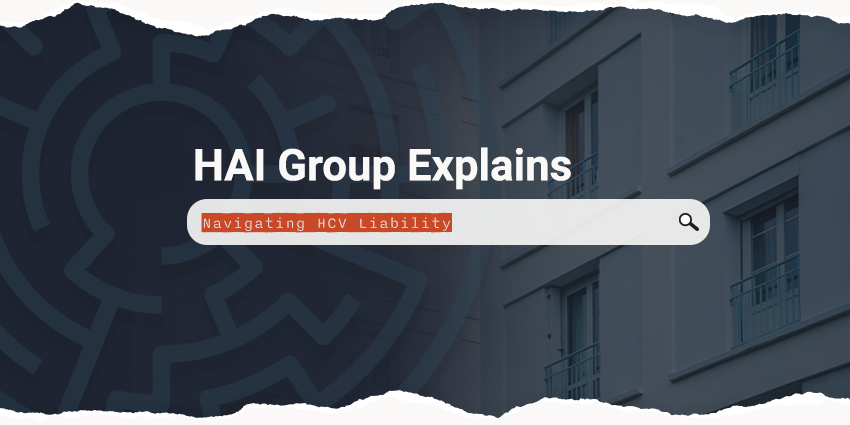In an era marked by escalating settlement values and growing jury awards due to social inflation, the imperative for affordable housing providers to fortify their liability coverage has never been more pressing.
Excess liability and umbrella liability policies emerge as pivotal instruments to address this pressing need, offering a protective buffer by covering losses that surpass the limits set by underlying liability policies, such as general liability insurance.
Angel Fear, assistant director of account services at HAI Group, emphasizes the role of these policies in constructing a coverage pyramid.
"Say an affordable housing provider with a $1 million per-occurrence general liability limit faces a $1.5 million claim," she said. "Excess and umbrella liability policies are designed to cover the $500,000 beyond the general liability limit."
However, notable differences exist between these policies, she noted.
How do excess liability and umbrella policies differ?
Distinguishing between umbrella liability and excess liability is crucial. When an underlying liability policy's per-occurrence or aggregate limits are depleted through a claim payment, both umbrella liability and excess liability policies are designed to step in to bridge the financial gap. That's generally where the similarities end. 
Excess liability policies typically follow form. In other words, they pay claims in the same way as the underlying policy, following all the same coverage terms, conditions, and exclusions. Excess liability policies apply to and run concurrently with a single underlying liability policy. For example, if an excess liability policy is written on top of general liability coverage, that excess coverage can only be tapped for claims that fall under the same general liability policy.
Umbrella liability policies typically don’t follow form and can protect against certain claims excluded by underlying liability policies. An umbrella liability policy can also be written on top of multiple underlying liability policies (e.g., general liability, employment practices, errors and omissions) but may have different coverage terms, conditions, and exclusions.
Why consider excess policies?
Several factors underscore the need for affordable housing providers to invest in excess or umbrella coverage.
Aggressive plaintiff tactics and the surge in nuclear verdicts, especially as they relate to premises liability, may necessitate measures to limit financial exposure in the event of substantial losses.
“Without excess or umbrella coverage,  a single claim could wipe out an affordable housing provider's reserve funds,” Fear said.
a single claim could wipe out an affordable housing provider's reserve funds,” Fear said.
Moreover, lender requirements are pivotal, particularly as public housing agencies collaborate with private entities for property redevelopment. Investors often mandate excess or umbrella liability coverage to mitigate financial risks.
"Banks are hedging for catastrophic losses," Fear said of excess coverage requirements. "Even if excess coverage isn't a requirement to borrow money, you still have an obligation to make sure your agency is sustainable."
HAI Group's development of a tailored excess liability solution for affordable housing providers stemmed from a crucial need identified within the affordable housing industry.
“Despite the contraction of the commercial insurance market in recent years, HAI Group remains steadfast in its commitment to providing excess liability coverage to our affordable housing partners,” Fear said.
Interested in working with HAI Group to secure excess liability coverage? Contact an HAI Group Account Executive today!
This article is for general information only. HAI Group® makes no representation or warranty about the accuracy or applicability of this information for any particular use or circumstance. Your use of this information is at your own discretion and risk. HAI Group® and any author or contributor identified herein assume no responsibility for your use of this information. You should consult with your attorney or subject matter advisor before adopting any risk management strategy or policy.
HAI Group® is a marketing name used to refer to insurers, a producer, and related service providers affiliated through a common mission, management, and governance. Property-casualty insurance and related services are written or provided by Housing Authority Property Insurance, A Mutual Company; Housing Enterprise Insurance Company, Inc.; Housing Specialty Insurance Company, Inc.; Housing Investment Group, Inc.; and Housing Insurance Services (DBA Housing Insurance Agency Services in NY and MI).






